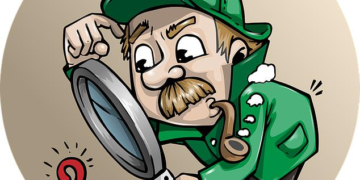Table of Contents
Part I: The Agony of a Flawed Reveal: An Introduction
I remember exactly where I was for the Pretty Little Liars Season 3 summer finale, “The Lady Killer.” As a pop culture analyst who had been tracking the show’s labyrinthine mystery from the beginning, finale nights were events.
The lights were dimmed, the social media feeds were open, and the air was thick with anticipation.
And then it happened.
In the episode’s final, heart-stopping moments, after a season of escalating terror, the camera panned to reveal the newest member of the nefarious “A-Team.” It wasn’t a peripheral character or a known antagonist.
It was Toby Cavanaugh, the show’s moral compass, its quiet hero, turning to face Mona Vanderwaal in the signature black hoodie that had become a symbol of pure, anonymous menace.1
The collective shock was palpable.
It rippled through the fandom in a tidal wave of all-caps tweets and frantic forum posts.1
This wasn’t just a plot twist; it felt like a fundamental violation of the show’s own emotional contract.
The pain of the reveal was deliberately amplified by its timing—it aired mere moments, narratively speaking, after Toby and Spencer Hastings finally consummated their deeply beloved relationship, a moment fans had been championing for years.1
The juxtaposition of intimacy and betrayal was exquisitely cruel, a masterstroke of shock-value television.
But as the shock subsided, a more corrosive feeling took its place: confusion.
When the show finally offered its official explanation—that Toby had joined the A-Team to protect Spencer—it landed with a thud.3
For years, this narrative wound has festered within the fandom.
The justification felt hollow, emotionally fraudulent, and logically bankrupt.
It didn’t just create a plot hole; it inflicted lasting damage on the integrity of Toby’s character and poisoned the well of “Spoby,” one of the show’s foundational relationships.5
The fan community was left with a maddening paradox: how could an act of “protection” involve the systematic psychological torture of the person you were trying to protect?.4
For years, I struggled with this paradox, trying to reconcile the show’s narrative with its emotional impact.
The epiphany, when it came, was a shift in perspective.
I realized the key was not to try and justify the storyline, but to diagnose it.
The answer wasn’t hidden in Rosewood’s twisted logic, but in the tropes of an entirely different genre: the world of classic espionage fiction.
Toby’s arc is a textbook example of a “Botched Double Agent” narrative.
By analyzing it through this lens—by understanding the rules of the trope it was trying to invoke—we can finally move past our frustration.
We can deconstruct why it felt so wrong, why it failed so spectacularly, and in doing so, achieve a kind of analytical catharsis that the show itself never provided.
The intensity of the fan reaction was never just about a surprising plot development.
It was a response to the desecration of a core character archetype.
Toby had been painstakingly established as the show’s moral anchor, a quiet, steady force of integrity in a town built on lies.9
He was the outsider who saw the Liars for who they were and loved them anyway.
His sudden, unexplained pivot to villainy, even a temporary one, felt like a betrayal not just of Spencer, but of the audience’s investment in the show’s own established rules.
The writers prioritized the immediate, tweetable shock of the moment over the long-term narrative coherence required to justify such a seismic character shift.
This decision created a “narrative debt”—a promise of a satisfying explanation—that was never fully paid, leaving a legacy of dissatisfaction that lingers to this day.
Part II: The Double Agent’s Gambit — A New Lens for a Broken Story
To understand why Toby’s storyline fails, we must first understand the machinery of the story it was attempting to be.
The “double agent” is one of the most compelling and complex archetypes in fiction, a character straddling a razor’s edge between loyalty and betrayal.11
A successful execution of this trope is not arbitrary; it relies on a set of core principles that create suspense, emotional depth, and logical consistency.
When we hold Toby’s arc up to this established framework, the cracks in its foundation become glaringly obvious.
Defining the Archetype
Drawing from decades of spy thrillers and narrative analysis, a successful double agent story is built on four essential pillars 13:
- Ironclad Motivation: The agent’s reason for infiltrating the enemy must be overwhelmingly powerful and non-negotiable. It could be to prevent a catastrophic event, to avenge a profound personal tragedy, or to protect a loved one from a specific, imminent, and credible threat. This motivation must be strong enough to justify the immense risks and moral compromises the agent undertakes. It is the engine of their entire arc.11
- High-Stakes Intelligence & Sabotage: The agent cannot be a passive observer. Their purpose is to actively undermine the enemy from within. They must be shown gathering crucial intelligence, thwarting enemy plans, feeding misinformation, or subtly steering events toward their true objective. Their presence inside the enemy camp must produce tangible, strategic results.11
- The Psychological Toll: Living a double life exacts a heavy price. A well-written double agent story delves into the immense mental and emotional pressure of this existence. The character is perpetually isolated, trusted by no one, and in constant danger of being exposed. This creates a rich inner world of conflict, paranoia, and moral ambiguity that makes the character compelling.12
- Plausible Deniability & Credible Actions: Every action the agent takes, no matter how villainous it appears on the surface, must have a secondary, hidden logic that aligns with their true mission. They must be able to rationalize their choices as necessary evils required to maintain their cover or advance their ultimate goal. There is a method to their madness.13
When we apply these standards to Toby Cavanaugh’s tenure on the A-Team, the narrative falls apart on every single metric.
The following table provides a systematic diagnosis of this failure, transforming the vague fan sentiment of “this doesn’t make sense” into a precise, evidence-based critique.
| Double Agent Characteristic | Archetypal Execution (in Spy Fiction) | Toby Cavanaugh’s Execution (in PLL) | Assessment |
| 1. Ironclad Motivation | Agent is driven by a powerful, non-negotiable goal (e.g., preventing a war, avenging a family). | Motives are twofold and conflicting: “protect Spencer” and “find out about his mom”.3 The “protection” is contradicted by his actions; the “mom” motive feels secondary and opportunistic. | FAIL |
| 2. High-Stakes Intelligence | Agent actively gathers critical information, foils plots, and provides intel that gives their side a clear advantage.11 | Toby learns nothing of value. He doesn’t identify Red Coat, prevent any major attacks, or provide the Liars with any actionable intelligence.8 He gives up the A-Team’s RV for vague information.16 | FAIL |
| 3. Psychological Toll | Narrative explores the agent’s isolation, fear, and moral conflict. They are shown struggling with their choices.12 | The focus is almost entirely on Spencer’s pain. Toby’s internal struggle is minimal and his actions appear cold and detached until the reunion, where he offers a simple excuse.4 | FAIL |
| 4. Plausible Deniability | Actions, while seemingly villainous, can be logically re-contextualized as necessary evils to maintain their cover or achieve a greater goal.13 | His actions (tormenting Spencer, leading her to a breakdown, faking his death) cause far more damage than any hypothetical threat he was “protecting” her from.4 The harm is direct and disproportionate. | FAIL |
This systematic failure demonstrates that the “Toby is A” storyline wasn’t just a flawed execution; it was a fundamental misunderstanding of the narrative trope it was trying to employ.
It borrowed the shocking visual of the double agent—the hero in the villain’s uniform—without understanding the intricate narrative mechanics required to make that image meaningful.
Part III: Deconstructing the Official Narrative & The Anatomy of a Failed Infiltration
The official in-universe explanations for Toby’s actions crumble under the slightest scrutiny.
By examining the two primary motives offered by the show—protecting Spencer and investigating his mother’s death—we can expose the contradictory logic and narrative inconsistencies that left fans so deeply dissatisfied.
The Flawed Premise of “Protection”
The central justification for Toby’s time on the A-Team is the claim, “Everything I’ve done, is so I could protect you”.4
This statement is not just weak; it is actively contradicted by the on-screen evidence.
The narrative does not show Toby preventing harm; it shows him directly inflicting it.
Fans and critics have exhaustively pointed out this gaping logical chasm for years.4
The direct consequence of Toby’s “protection” was Spencer’s complete psychological collapse.
His betrayal, combined with the A-Team’s machinations that he was complicit in, led to her spiraling into a state of severe emotional distress and paranoia.17
This culminated in one of the series’ darkest and most memorable sequences: Spencer’s admission to Radley Sanitarium.6
She was not saved from A’s games; she became their most broken victim, precisely because of Toby’s actions.
The idea that one can protect a loved one by driving them to a mental breakdown is a narrative absurdity.
The harm he caused was tangible and devastating, while the threat he was supposedly protecting her from remained abstract and hypothetical.
As one fan aptly questioned, “What would have happened to her that was so much worse if he hadn’t been ‘protecting’ her from the inside?”.4
The show never provides a satisfactory answer.
The Secondary Motive: The Mystery of Marion Cavanaugh
The second motive, often presented as a supplementary reason for his actions, was Toby’s desire to get information from “A” about the suspicious death of his mother, Marion Cavanaugh.5
While this provides a more personal and understandable goal, its integration into the storyline is clumsy and further undermines his credibility as a competent double agent.
This motive positions Toby not as a selfless protector, but as a self-interested party willing to endanger his girlfriend and her friends for personal closure.
The most damning piece of evidence is the incident with the A-Team’s RV.
The Liars had discovered A’s mobile lair, a treasure trove of evidence, surveillance equipment, and potential DNA that could have ended their torment once and for all.
Instead of securing this vital intelligence asset, Toby takes it and trades it back to “A” in exchange for a single, vague clue about his mother’s case.16
This act is indefensible from a tactical standpoint.
A true double agent would recognize the strategic value of the RV and would never sacrifice such a goldmine for a piece of personal information.
This decision demonstrates that his priorities were confused and his actions counterproductive to the larger goal of stopping A.
It reinforces the diagnosis of a “failed agent,” one whose personal agenda sabotaged the mission he was supposedly undertaking for the greater good.
A Catalogue of Ineffective Espionage
Beyond the flawed motivations, Toby’s actual performance as an A-Team member was a masterclass in incompetence.
- Failure to Gather Intelligence: Despite working directly alongside Mona, the operational leader of the A-Team at the time, Toby learns nothing of consequence. He fails to uncover the identity of her superior, the mysterious “Red Coat,” who was giving Mona orders. He provides no actionable intelligence to Spencer or the other Liars that could help them anticipate or neutralize A’s attacks.8 His infiltration yielded zero strategic gains.
- Active Participation in Torment: Toby was not a reluctant participant trying to minimize damage. He was an active agent in A’s cruelty. The most egregious example was his role in the plot that led Spencer to believe he was dead. After a body with Toby’s distinct tattoo was found in the woods, Spencer was allowed to believe her boyfriend was murdered, a trauma that was a primary catalyst for her breakdown.6 This act served no conceivable protective purpose; it was pure psychological warfare in which he was a willing soldier.
- Lack of Sabotage: Throughout his time on the A-Team, there is not a single instance of Toby subtly sabotaging one of Mona’s plans, feeding her false information, or secretly warning the Liars of an impending trap. His “protection” remains an entirely off-screen, theoretical concept that is never demonstrated through on-screen action.
The writers attempted to fuse two distinct and often contradictory character archetypes—the selfless protector and the selfishly motivated investigator—into a single, incoherent role.
A character cannot simultaneously be a noble guardian and a reckless operative whose actions cause direct, catastrophic harm to the very person they claim to be protecting.
This failure to commit to a single, believable motivation is the fundamental flaw at the heart of the storyline’s logic.
Part IV: The Ghost in the Machine — Decoding the Writers’ Room
To fully understand the “Toby is A” debacle, we must look beyond the fictional town of Rosewood and into the real-world pressures of the writers’ room.
The inconsistencies in Toby’s arc are not just random errors; they are symptoms of a larger conflict between a pre-planned narrative and the evolving demands of a long-running, fan-driven television show.
The “double agent” storyline appears less like a planned artistic choice and more like a hastily applied narrative patch.
The Retcon Theory
The most persistent and plausible explanation among dedicated fans is that Toby was originally intended to be a genuine villain, and the “double agent” plot was a later invention—a retcon—to salvage his character and the popular “Spoby” romance.6
The evidence for this theory is compelling.
In early interviews surrounding the Season 3 reveal, the show’s creative team emphasized Toby’s darker motivations.
Executive Producer Oliver Goldstick, discussing an upcoming flashback, stated that Toby “hated those girls and really wanted to make them pay” for their role in “The Jenna Thing” and his subsequent ostracization.20
Actor Keegan Allen echoed this, explaining that his character felt excommunicated and thought, “I’ll get you back”.20
This framing of Toby as a vengeful antagonist, rooted in his trauma from Season 1, is a far cry from the noble protector narrative that was ultimately presented.
It suggests a completely different, and arguably more coherent, character trajectory was initially planned.
Furthermore, clues from earlier seasons hint at a longer, more sinister involvement.
In the Season 2 finale, a character working with A is referred to as “Pretty Eyes.” While showrunner Marlene King later claimed this was Mona, the nickname became strongly associated with Toby, leading many fans to believe his recruitment into the A-Team predated his official reveal, making the “to protect Spencer” motive chronologically impossible.21
Analyzing the Official Word
Public statements from the show’s creators often did more to muddy the waters than to clarify them.
Marlene King repeatedly called the Toby twist her “favorite” of the entire series but offered little in the way of a satisfying logical defense for it.22
Her interviews and online interactions with fans often revealed a writing process that was fluid and highly responsive to audience feedback, which lends significant weight to the retcon theory.23
The knowledge that the writers were willing to adapt the story based on fan desires makes it highly probable that the overwhelming popularity of the “Spoby” relationship made the prospect of turning Toby into a true, irredeemable villain untenable.
The actors’ interpretations also reveal a telling divergence.
Troian Bellisario (Spencer) consistently focused on the profound and lasting emotional trauma the betrayal inflicted on her character, treating it as a real and damaging event.20
Keegan Allen, meanwhile, was tasked with justifying the unjustifiable, often falling back on Toby’s history as an outcast as a blanket explanation for his actions.20
The disconnect between their perspectives mirrors the disconnect in the narrative itself.
The “Botched Double Agent” as a Narrative Patch
Synthesizing this evidence leads to a clear conclusion: the “double agent” storyline was a narrative patch, a device created to reconcile two irreconcilable demands.
On one hand, the show’s mystery-box format required a constant supply of shocking twists, and revealing a beloved main character as a villain was a guaranteed way to generate buzz and high stakes.1
On the other hand, the commercial and emotional success of the show relied heavily on its core romantic pairings, and permanently destroying “Spoby” by making Toby truly evil was a risk the network and writers were likely unwilling to take.7
The “double agent” plot was the clumsy compromise.
It allowed them to have the shocking reveal without the permanent consequences.
However, in trying to satisfy both demands, it failed at each.
The betrayal was ultimately defanged and rendered nonsensical by the weak explanation, and the romance was irrevocably tainted by the severity of the psychological abuse Toby inflicted upon Spencer.
For many viewers, their relationship never fully recovered its initial purity, as the memory of his cruelty lingered, forgiven but not forgotten.6
This storyline stands as a perfect microcosm of the fundamental tension in modern, long-form television: the constant, often messy negotiation between a planned narrative architecture and the powerful, real-time influence of its audience.
Part V: Conclusion: Finding Catharsis in a Flawed Masterpiece
The “Toby is A” storyline remains one of the most debated and frustrating arcs in the history of Pretty Little Liars.
The show’s official explanation left a void of logic that fans have tried to fill for over a decade.
However, by ceasing the attempt to justify the plot and instead choosing to diagnose it, clarity emerges.
The arc is best understood not as a coherent story, but as a failed implementation of the “double agent” trope.
This framework allows us to pinpoint the specific mechanical failures—the weak motivation, the lack of intelligence gathering, the absence of psychological depth, and the implausible actions—that caused the narrative to collapse.
This analysis reframes the enduring fan frustration.
It is not a petty complaint about a simple “plot hole,” but a legitimate, intuitive response to a story that violated its own emotional and logical rules.
The feeling that “it didn’t make sense” was correct, and the “Botched Double Agent” lens provides the vocabulary and structure to explain precisely why.
We can move from a state of confusion to a more detached, academic appreciation of the storyline as a fascinating narrative failure.
Ultimately, the saga of Toby’s time in the black hoodie serves as a powerful case study in the complex, high-pressure environment of modern television production.
It is a monument to the delicate dance between writers’ intentions, the unexpected magic of actor chemistry, and the undeniable influence of a passionate, invested fandom.
The “double agent” plot was the scar tissue formed when the original creative impulse collided with the real-world necessity of protecting a beloved character pairing.
Returning to that moment of the initial reveal, the shock and betrayal still feel potent.
The analysis provides intellectual closure, but it does not erase the emotional memory of seeing a hero fall.
Yet, perhaps that is the enduring legacy of Pretty Little Liars.
It was a show that, even in its most maddening and flawed moments, was never boring.
It gave its audience a rich, complex, and deeply frustrating puzzle to solve, sparking years of debate, theory-crafting, and communal analysis.
In dissecting its failures, we engage with the text on a deeper level, finding a unique form of catharsis in finally understanding the betrayal that broke Rosewood.
Works cited
- Toby Part of the Pretty Little Liars A-Team — 3X12 Highlights! – YouTube, accessed on August 5, 2025, https://www.youtube.com/watch?v=8teDfK8RBvc
- Pretty Little Liars Recap, “The Lady Killer” (Season 3 Summer Finale) | girls like giants, accessed on August 5, 2025, https://girlslikegiants.wordpress.com/2012/08/31/pretty-little-liars-recap-the-lady-killer-season-3-summer-finale/
- Pretty Little Liars Everyone Who Was A, Team Characters – Refinery29, accessed on August 5, 2025, https://www.refinery29.com/en-us/2017/04/149947/pretty-little-liars-who-is-a-team-reveal
- What exactly was Toby “protecting” Spencer from? : r/PrettyLittleLiars – Reddit, accessed on August 5, 2025, https://www.reddit.com/r/PrettyLittleLiars/comments/5qk44g/what_exactly_was_toby_protecting_spencer_from/
- What Was Toby’s Motive ? I Don’t Get It At All!!! : r/PrettyLittleLiars, accessed on August 5, 2025, https://www.reddit.com/r/PrettyLittleLiars/comments/1bogbo3/what_was_tobys_motive_i_dont_get_it_at_all/
- season 3: toby “working” with A : r/PrettyLittleLiars – Reddit, accessed on August 5, 2025, https://www.reddit.com/r/PrettyLittleLiars/comments/13zz1d3/season_3_toby_working_with_a/
- What do you really think of Toby Cavanaugh? : r/PrettyLittleLiars – Reddit, accessed on August 5, 2025, https://www.reddit.com/r/PrettyLittleLiars/comments/3dqwb0/what_do_you_really_think_of_toby_cavanaugh/
- So what exactly did Toby accomplish by joining the A team? : r/PrettyLittleLiars – Reddit, accessed on August 5, 2025, https://www.reddit.com/r/PrettyLittleLiars/comments/vj5k0q/so_what_exactly_did_toby_accomplish_by_joining/
- Toby Cavanaugh from Pretty Little Liars – CharacTour, accessed on August 5, 2025, https://www.charactour.com/hub/characters/view/Toby-Cavanaugh.Pretty-Little-Liars
- Pretty Little Liars: Toby’s 5 Best (& 5 Worst) Traits – Screen Rant, accessed on August 5, 2025, https://screenrant.com/pretty-little-liars-toby-best-worst-traits/
- Six Tropes for Military and Spy Thriller Writers: | by Daniel Rathaus | Medium, accessed on August 5, 2025, https://medium.com/@danielrathaus/six-tropes-for-military-and-spy-thriller-writers-ecc07a3d28d3
- Inside Jobs and Double-Crosses: Spy Fiction’s Delicious Double …, accessed on August 5, 2025, https://spyscape.com/article/a-celebration-of-deliciously-dark-villains-double-agents-in-spy-fiction
- Writing Characters Whose Loyalty is Uncertain – Fiction University, accessed on August 5, 2025, http://blog.janicehardy.com/2015/02/writing-characters-whose-loyalty-is.html
- Decoding the Spy Genre in Film and TV | No Film School, accessed on August 5, 2025, https://nofilmschool.com/spy-movies
- Pretty Little Liars: Every A and A Team Member, Ranked – MovieWeb, accessed on August 5, 2025, https://movieweb.com/pretty-little-liars-every-a-ranked/
- Toby CavanAugh Theory. [May be longish] : r/PrettyLittleLiars – Reddit, accessed on August 5, 2025, https://www.reddit.com/r/PrettyLittleLiars/comments/2bvzw3/toby_cavanaugh_theory_may_be_longish/
- Pretty Little Liars Recap: “Misery Loves Company,” (Season 3 …, accessed on August 5, 2025, https://girlslikegiants.wordpress.com/2013/01/23/pretty-little-liars-recap-misery-loves-company-season-3-episode-16/
- Toby is A Reveal : r/PrettyLittleLiars – Reddit, accessed on August 5, 2025, https://www.reddit.com/r/PrettyLittleLiars/comments/16n8nyc/toby_is_a_reveal/
- Retrospectiva: An A-Team theory that could have been great if it was true – Reddit, accessed on August 5, 2025, https://www.reddit.com/r/PrettyLittleLiars/comments/1lvyq8k/retrospectiva_an_ateam_theory_that_could_have/
- Pretty Little Liars’ Marlene King on Toby’s Reveal: “The Clock Is …, accessed on August 5, 2025, https://www.tvguide.com/news/pretty-little-liars-toby-reveal-1059144/
- When did Toby join the A team? : r/PrettyLittleLiars – Reddit, accessed on August 5, 2025, https://www.reddit.com/r/PrettyLittleLiars/comments/10ippi4/when_did_toby_join_the_a_team/
- ‘Pretty Little Liars’ Showrunner Marlene King Says THIS is the …, accessed on August 5, 2025, https://www.justjaredjr.com/2017/06/23/pretty-little-liars-showrunner-marlene-king-says-this-is-the-plotline-that-upset-fans-most/
- I am writer, director and producer Marlene King. You might know me from PRETTY LITTLE LIARS, Just My Luck, Now and Then, or any number of different projects. AMA! : r/IAmA – Reddit, accessed on August 5, 2025, https://www.reddit.com/r/IAmA/comments/27prs2/i_am_writer_director_and_producer_marlene_king/
- Why did the writers mess up so badly? : r/PrettyLittleLiars – Reddit, accessed on August 5, 2025, https://www.reddit.com/r/PrettyLittleLiars/comments/hsv184/why_did_the_writers_mess_up_so_badly/
- Marlene King on what is possible for “Pretty Little Liars” and directing tonight’s episode, accessed on August 5, 2025, https://afterellen.com/marlene-king-on-what-is-possible-for-pretty-little-liars-and-directing-tonights-episode/
- I hate Toby. I know you hate Toby. Does everyone else hate Toby? : r/PrettyLittleLiars – Reddit, accessed on August 5, 2025, https://www.reddit.com/r/PrettyLittleLiars/comments/39y27r/i_hate_toby_i_know_you_hate_toby_does_everyone/






